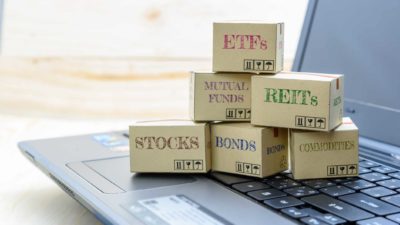If you're a keen ASX investor, chances are you've heard some talk about bonds and rising bond yields in recent months. While many investors don't really pay attention to the bond markets, it's an indisputable fact this asset class's movements can have profound implications for the ASX stock market, and potentially your own share portfolio.
What is a bond?
A bond is an investment that really represents a loan. When you buy a bond from the party that issues it, you are, in effect, loaning money. The issuer (usually a company or a government) takes your cash with the promise of paying you regular interest until the bond expires. At that point, you get your initial principal back.
Bonds also trade on a secondary market, just like shares do. If you want to sell your bond halfway through its lifecycle, you can do so. The bond's price will be affected by what interest rate it was issued with, compared to the current interest rate environment. For example, a 10-year bond paying a 5% interest rate will be worth more than a 10-year bond with a 4% interest rate.
Bonds are how governments and companies fund expenses they don't want to fund from other income sources. Many investors love bonds for the income certainty and perceived lower risk they can offer.
How do bonds affect ASX shares?
At first glance, the bond market appears to be completely unrelated to the share market. After all, government and corporate debt instruments are not that comparable with ownership stakes in different companies.
But that's not quite the case. Bonds can and do have direct implications for the stock market.
And they are well worth understanding if you are a keen investor.
Out of the share market and into the bond market
Firstly, bonds are directly influenced by current interest rates. The rates governments issue bonds at are determined by whatever the cash rate of the day is. Since the Reserve Bank of Australia (RBA) just yesterday increased interest rates, Australian government bonds will now be paying out higher interest rates from now on.
When interest rates were at near-zero levels a few years ago, the appeal of holding a bond was very low. Why would you hold a 10-year government bond paying an interest rate under 2% when you could buy an ASX share with a franked dividend yield above 5%?
But today, the situation is far different. Government bonds are now paying interest rates above 4.5%. As such, many investors who might have bought ASX shares for income might now consider these 'safer' investments. Or else they might just put their cash in the bank where you can now get a 5% yield on a term deposit.
This can pull a lot of money out of the share market and into the bond and cash markets, which will in turn lower share prices across the board.
Why do you think the S&P/ASX 200 Index (ASX: XJO) has basically gone nowhere over the past 12 months? The avalanche of interest rate rises we've seen over 2022 and 2023 have almost certainly played a role.
Watch out for debt
Secondly, rising interest rates also directly affect how companies can borrow money. As we discussed earlier, companies also issue bonds to raise capital. When interest rates are low, this debt is cheap. But when rates rise, this debt becomes proportionally more expensive.
As such, rising interest rates have a big impact on ASX shares that hold a lot of debt. Think banks, real estate investment trusts (REITs), and unprofitable tech shares. That's why many of these sorts of investments have also had a rough time on the share market of late.
This is why it's important to understand your own companies' debt positions.
Foolish takeaway
Bonds and the bond markets may not be the most gripping corner of the financial world to delve into. But that doesn't change the fact they can have huge consequences for the average investor's share portfolio.
So make sure you understand the basics of your own companies' debt positions. Failure to do so could have catastrophic consequences.








